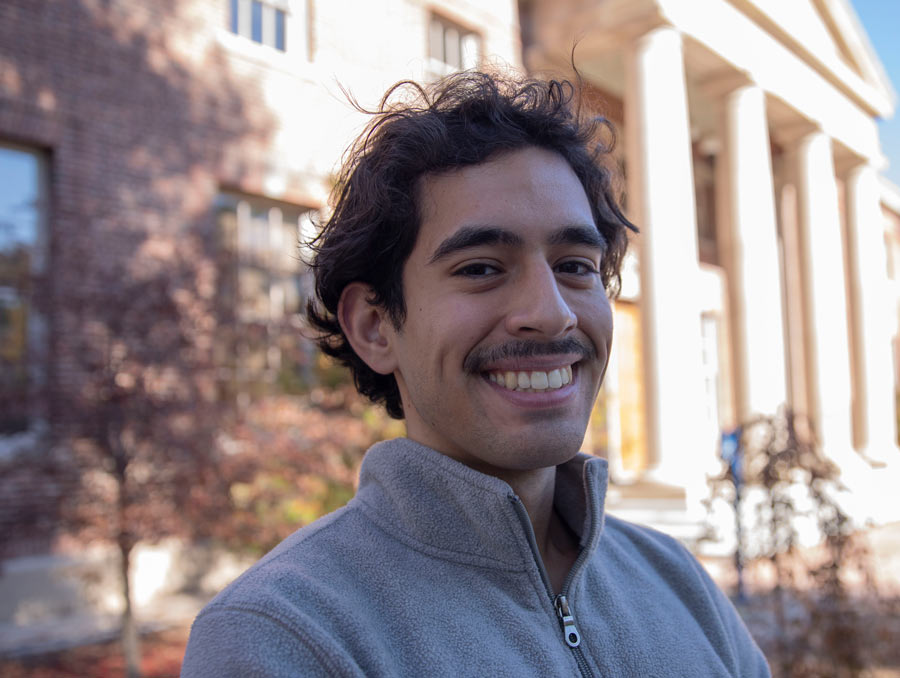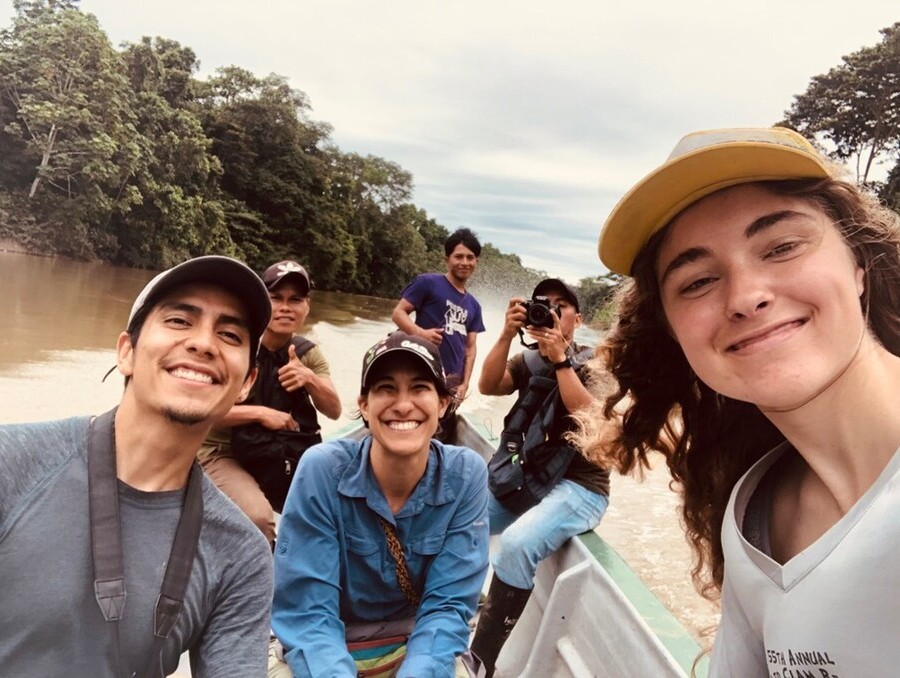Jesus Diaz Sanchez is a graduating senior majoring in chemistry and was recently awarded a prestigious National Science Foundation Graduate Research Fellowship. He applied to multiple graduate programs and visited open houses for the programs to see which were the best fit for him. Diaz Sanchez was accepted into the Massachusetts Institute of Technology and will be starting a Ph.D. there in the fall.
“Eventually I came across several principal investigators at MIT that I really like,” Diaz Sanchez said. He’ll be doing a rotation in his first semester in at least three research labs: those of Connor W. Coley, Heather J. Kulik and Bin Zhang.
Diaz Sanchez hopes to leverage AI and machine learning in his research to accelerate molecular discovery. Diaz Sanchez visited MIT and was excited about the culture there.
“I knew this was the place where big science happens, but there's people there that actually care about everyone who’s involved with that school,” Diaz Sanchez said. “It just feels really nurturing and I didn't expect that.”
He is part of the Maximizing Access to Research Careers (MARC) program, which pays students who want to pursue a doctoral degree to do research on campus.
Diaz Sanchez’s research on rare earth elements in different solvent phases resulted in a manuscript that is under review in the journal Physical Chemistry Chemical Physics. His work was also part of a presentation given at the Chemical Separations Gordon Research Conference in Galveston, Texas. He’s also working on finishing his senior thesis.
Part of the MARC program provides an opportunity for students to participate in research at another university over the summer. Diaz Sanchez did his summer externship at the University of California, San Diego, where much of his research was experimental nanoparticle synthesis. His work at the University of Nevada, Reno has been computational, and his summer externship experience confirmed for him that he wants to continue to do computational and theoretical research.
“I'm just excited to meet new friends and work on some really cool science and see what the next step is,” Diaz Sanchez said.
Diaz Sanchez said that balancing his coursework and research with applications for graduate school was at times overwhelming, and there were times that he didn’t feel like writing another paragraph for another personal statement.
“But I think what I realized is that through doing things that I don't want to do, I grow,” Diaz Sanchez said. “I think that time was really valuable for me because I really got to reflect on what was more important to me.”
Diaz Sanchez said that when he started at the University, he had a lot of uncertainty about what he wanted to do. He switched his major from microbiology and immunology to chemistry. The biggest challenge he overcame, he said, was realizing his potential.
“I think I got really lucky,” Diaz Sanchez said. “I met Dr. Cantu and Dr. de Bettencourt-Dias and a lot of different faculty throughout different departments that were really supportive and encouraging and told me it’s up to me to decide what it is I want from my experience here.”
Diaz Sanchez also credits his sister, who graduated from the University with a bachelor's degree in nursing, with helping him get to where he is today.
“She does some awesome stuff, truly life-changing stuff, so I hope I can, through my science, make a difference in people’s lives in some capacity,” Diaz Sanchez said.
Diaz Sanchez said he recently learned about the monarch butterfly migration from Mexico to Canada, a journey of 3,000 miles. The butterflies don’t survive the whole journey – it takes three to four generations for the population to arrive at their final destination. The film “A Million Miles Away” likens the journey of many immigrant families from central and south America to the butterfly migration, and Diaz Sanchez said that idea resonated strongly with him.
Diaz Sanchez’s parents immigrated from Mexico, his dad when he was a teenager, to the United States. Diaz Sanchez’s parents had to work hard to support their children, and Diaz Sanchez said he often spent the night on family friends’ couches so he could get to school.
“I definitely didn’t do this alone,” Diaz Sanchez said, reflecting on his past experiences. “It was a combination of all these sacrifices along the way from my siblings, parents and grandparents that eventually led to something this great.”
Diaz Sanchez acknowledged multiple professors for their support of him throughout his undergraduate education.
“Dr. David Cantu, my research advisor, believed in me from the start, and I never really had that. Same thing with Dr. Ana de Bettencourt-Dias. I took her grad class as a sophomore, and that was one of the most valuable experiences I had, it really showed me I really want to do grad school. Dr. Thomas Summers, the postdoc that mentored me throughout my undergrad, showed me how to do good science and be critical of myself. Dr. Wes Chalifoux really pushed me to be better, whether it was through taking his classes or just as a mentor. Of course, my parents, Ana Sanchez and Jesus Diaz, I definitely wouldn’t be where I am without them. Same thing with both my siblings, Emmanuel Diaz and Alejandrina Diaz. Everyone at the University that I’ve encountered that has helped me or was invested in my well-being.”
















